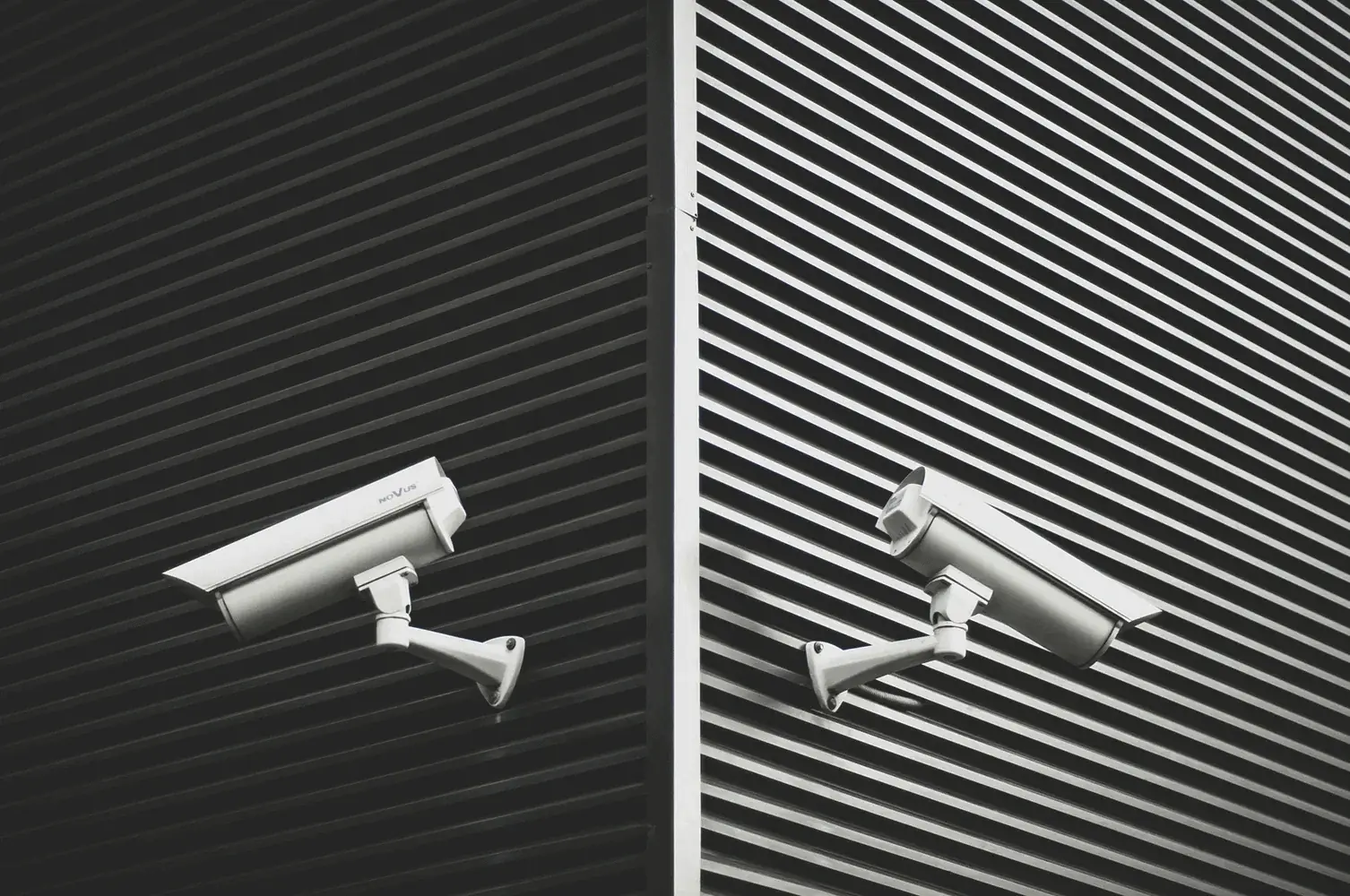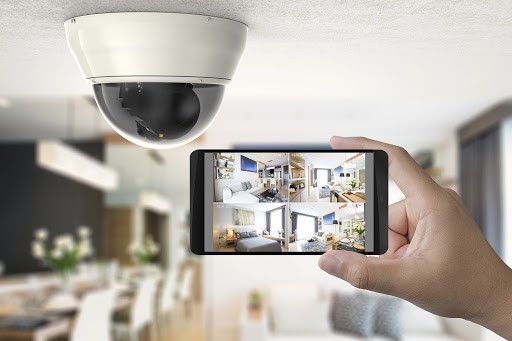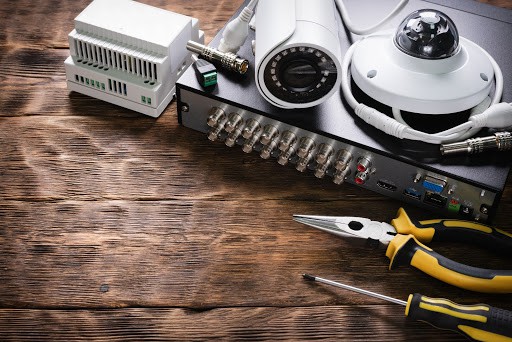Solutions to the Top Security Camera System Questions

There’s no training for becoming a homeowner and the avalanche of maintenance questions that follow. Besides, between mortgages, chores, and pesky HOAs, there’s hardly time to worry about whether a simple door alarm is enough to secure your property or if a hair-width crack in your wall means the foundation is going under.
While we can’t speak to the latter problem, as home safety experts, we can provide solid answers on your pressing security system questions, no matter how small. In this article, we’ll address the five most common home security system questions (per Google search results), hopefully putting your safety worries to rest for good.
Security System Q & A
Q: What should I look for when buying a house alarm?
A: First, let’s break down the difference between burglar alarms and home security systems, as the two are easily confused.
Burglar alarms are individual, self-monitored units intended to alert you in the case of a break in. Security systems, on the other hand, may involve alarm units or other security equipment, but these materials are provided through a security company which then provides some form of 24/7 monitoring, such as calling the police when an alarm is set off.
So, if you’re considering a house alarm system, you first need to determine if DIY, individual alarms and sensors are right for you, or if a monitored security system is more suited to your family’s needs. Though the former is cheaper, it only alerts you to nefarious activity after a trespass has occurred, not to mention it only works to deter crime if you’re home or near enough to hear the alarm. The latter, though more expensive, is probably more cost effective since, for a monthly fee, you receive 24/7 monitoring in addition to multiple pieces of security equipment, such as alarms and security cameras.
Q: What are the top 5 home security systems?
A: Though answers to this question vary based on personal preference, after browsing Consumer Reports and numerous other online rankings, we’ve compiled a list of what we believe to be the best home security systems on the market, in no particular order:
- Vivint Security — best in smart home security
- SimpliSafe — best overall DIY security system
- ADT — best in experienced professional monitoring
- Cove Security — best in customer service
- Adobe — best in DIY smart home security
That said, this is merely our opinion, and we urge you to evaluate your family’s needs and conduct your own research before landing on any one system.

Q: What should I ask a home security company?
A: Great question! Before committing to any one security company, you should read up on their services, equipment, and customer service, weighing what you find against your family’s needs. Once you’ve landed on a couple security services, the next step would be to research or ask a company representative several of the following questions:
- How long has the company been in business? While you might save money in using a newer company, you should only trust more advances security system monitoring and installation to reputable companies with years of experience.
- Is the company fully licensed? Just because the company exists doesn’t mean it’s licensed. To ensure you receive the utmost quality, call to verify that your security company is licensed for business with state and local governments.
- What is the company’s average response time to alarms? In security, a great response time is considered 60 seconds or less.
- How frequently does the company test their systems? This involves regular check-ups to ensure all equipment is working properly. Here, the gold standard is once per month.
- What measures does the company take to ensure client safety? This question covers a range of customer safety concerns, from whether the company is fully bonded to whether the contractors who install the equipment receive background checks. Evaluate your concerns and ask accordingly.
- Does the security equipment have a warranty? All good things must end and, with electrical equipment, the final act may be closer than you think. Be sure to inquire on the length of the warranty and whether or not your security provider offers free installation/repair.
- Can the company provide information to share with homeowner’s insurance? In most cases, showing proof of a security system should lower your monthly premium.
- Does the company offer systems with advanced safety features? This includes remote access, cellular monitoring, video services, and email/text/phone notifications.
Q: What’s the difference between surveillance cameras and security cameras? And what’s the difference between unmonitored and monitored security systems?
A: (Yes, we slightly manufactured this double question, but we think the answers to both are pertinent and somewhat related.)
Security cameras record video footage which are then translated into signals and sent to a remote monitor, whereas surveillance cameras operate on IP networks which link the remote camera to an assigned security location. The latter also typically implies the use of a third-party security monitoring professional. It follows that if you’re installing video cameras on your property, unless they’re heavily monitored by your security company, they’re almost always security cameras.
Regarding security systems, monitored systems are actively monitored by a home security company. This means that if there’s a break in, trespasser, or other equipment-triggering emergency, the security team is immediately notified. Conversley, unmonitored or self-monitored systems involve security equipment you or a contractor installed, which you are then in charge of monitoring.
These differences are important to note when researching security systems and selecting one that fits your safety needs.
Q: Should I get window sensors?
A: In other words, are window sensors worth it? We think so, though neglecting to install these small alarms won’t result in a huge dent to your home’s overall safety if you have other security equipment in place.
According to ADT, 23% of burglars use first-floor windows to enter a home — an alarming statistic indicating the importance of both locking and securing your windows. Window sensors can either alert you if your window is opened or if your glass breaks. Though most home security systems offer window sensors either separately or as part of an equipment bundle, it’s also relatively cheap to purchase these sensors independently.

We Know Security is King
As expert locksmiths, we know proper home security starts at the front door, but it doesn’t stop there. Ensuring your family has the best in protection means scoping your entire property for potential blind spots, and then finding ways to fortify potential weaknesses. If you’re looking for a blueprint on this search, look no further than Pop-A-Lock’s free, DIY security audit, found here.


